PrAACtically Reading with Karen Natoci: It’s Okay to Be Different
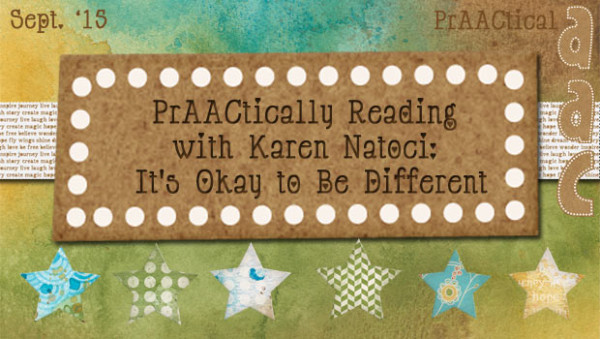
Get ready to read! Interactive storybook reading is one of my favorite ways to build AAC skills. No matter what the age or kind of disability, it seems like my therapy always includes ssome type of reading material. We are so fortunate to welcome back Karen Natoci, a Michigan SLP who shares our passion for literacy and AAC. You can explore some of Karen’s previous PrAACtically Reading posts here. In this post, Karen introduces us to a book about differences, and shares her ideas for using it to build AAC fluency. Be sure to check out her lesson plan and the video clips that she is so generously sharing.
——————————————————————————————-
Book: It’s Okay to Be Different, by Todd Parr
Core Vocabulary: all gone, big, different, do, don’t, finished, get, go, he, help, here, I, it, like, look, me, more, no, not, out, she, small, some, that, uh oh, want, where, who, you
Additional Vocabulary- Body Parts: eyes, ears, fingers, hair, head, mouth, nose, teeth, toes
COMMUNICATION Matrix (Rowland, 2009) Level: I-VII (all levels!)
I was so excited when this book by Todd Parr, It’s Okay to Be Different, arrived in my mailbox. It is wonderful in every way! Each page has lovely bright colors and strong outlines which I thought were excellent for our students with low vision as well as attention grabbing for others with fine vision but benefited from the extra “stimulus pull.” Each page had the repeated line, “It’s okay…” with thoughtfully written sentence endings that can serve as great opportunities to expand conversation.
As usual, when reading to a class, I never wander far from the giant core board. If your classroom hasn’t made one yet, please do! It is a way to easily model core language and AAC use while reading to your students! During the reading, I modeled what I wanted the students to do: I read each page, paused, and chose a core word that went with each page. In the reference sheet, you will see a list of many possible core words to use!
Here is a master list of core words that go with each page in the book and a lesson plan for this book.
It will depend on your students- but I never chose more than about three. In most cases, I chose one. For example, the first page says, “It’s okay to be missing a tooth.” And I chose the core symbol, “ALL GONE” to go with that page- modeling what I would SAY about each page using AAC.
Here are some video clips:
After we read the story, we started our reflection project. Everyone used their own individual communication method (eye gaze, touch/tap, choice board, Go Talk, PODD, other AAC device) to choose what color construction paper they wanted. They used their alternative pencils to dictate/write their name. Each student chose their favorite page in the book and then they access their core communication words to make a comment about their favorite picture. An enlarged version of the tet was printed and cut into two parts: “It’s okay” was the first part and the second part contained the rest of the sentence. The students helped me tape the sentence together.
Check out some great photos of their work!
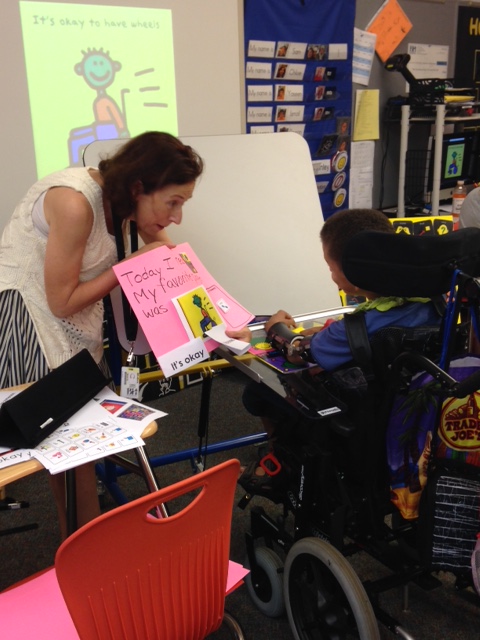
This student used her AAC system to expand upon the concept of needing help and added “bathroom.”
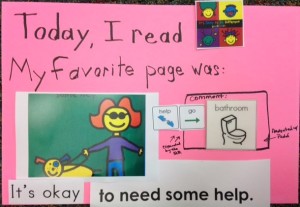
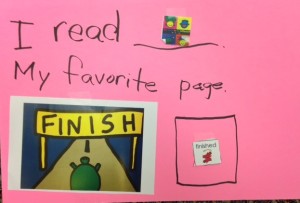
Filed under: PrAACtical Thinking
Tagged With: Karen Natoci, reading
This post was written by Carole Zangari
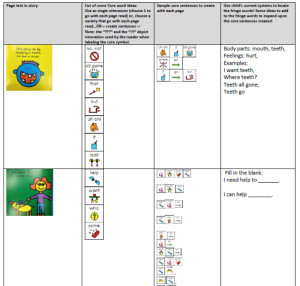
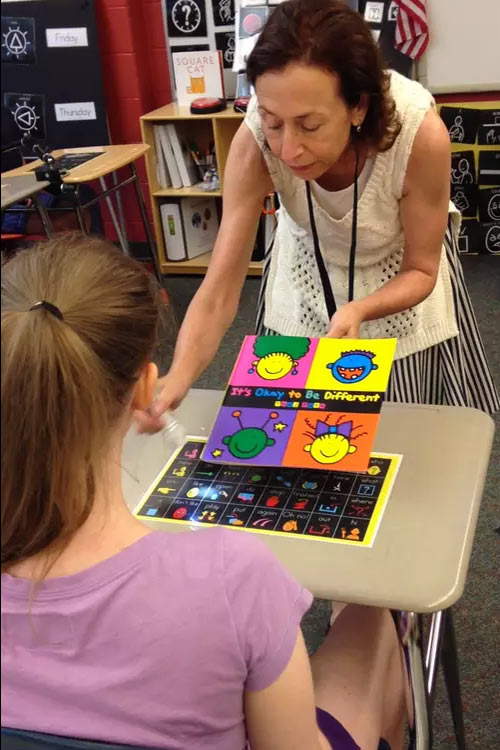
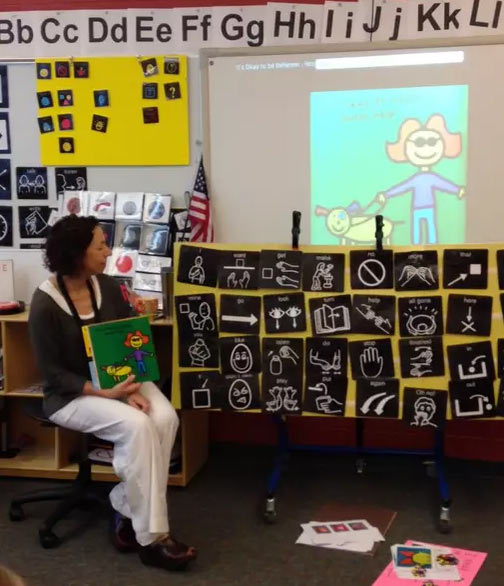
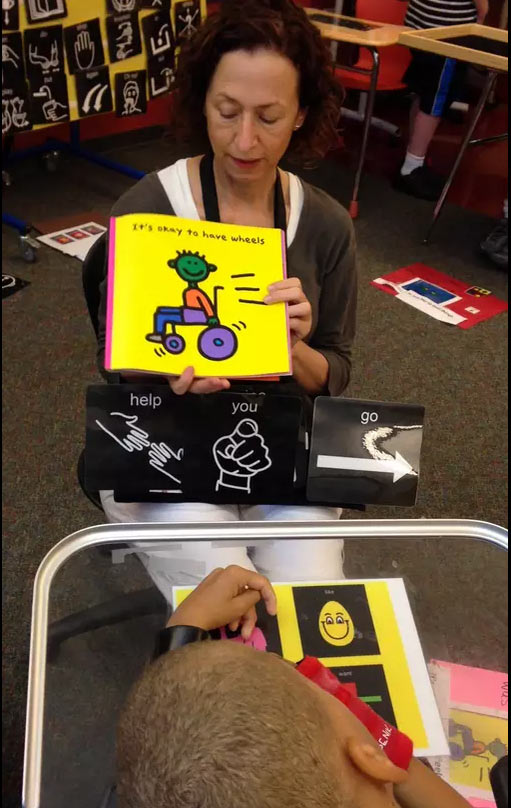
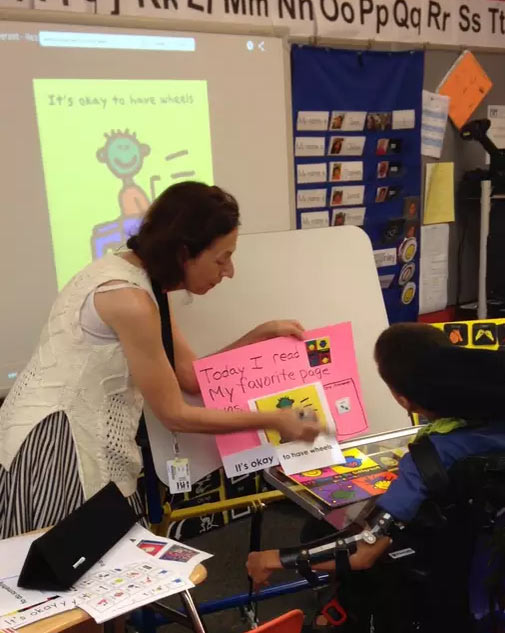

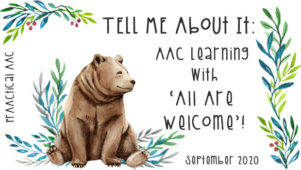
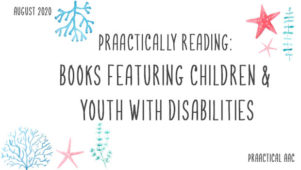
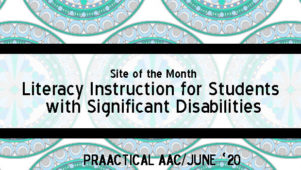
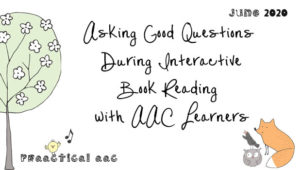
4 Comments
Hi there!
I just had a quick question about what material you use to print your large core words. I love the high contrast of the symbols in this post, however I have noticed your large symbols seemed to be printed on a material that looks more transparent.
Thanks so much!
Emily
Hi Emily!
It may be possible that the glare of the lamination is visible. We printed the symbols sized to be 5.5 x 5.5 inches using boardmaker. We laminated them using 10 mil lamination material so that they would endure lots of use. Hope this helps!
Karen
I think that book is great for another reason. Most of those kids have probably already noticed that they’re different from others, and some of them may be feeling unhappy about it. Telling them ‘it’s OK to be different’ could be a very valuable message for them.
I agree, Ettina! It was such a self-affirming topic for ALL of us! It provided a great opportunity for the staff to model their own differences using core vocabulary. Being different is the norm, but probably something our children with Complex Communication Needs rarely get to acknowledge. I guess you also hit on another reason why I love modeling and promoting AAC Language through book reading, the topics are so rich and bring a host of ideas to share! Thank you for your comments!